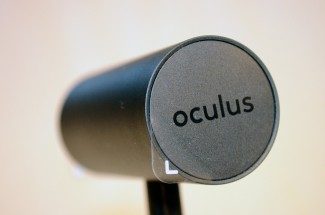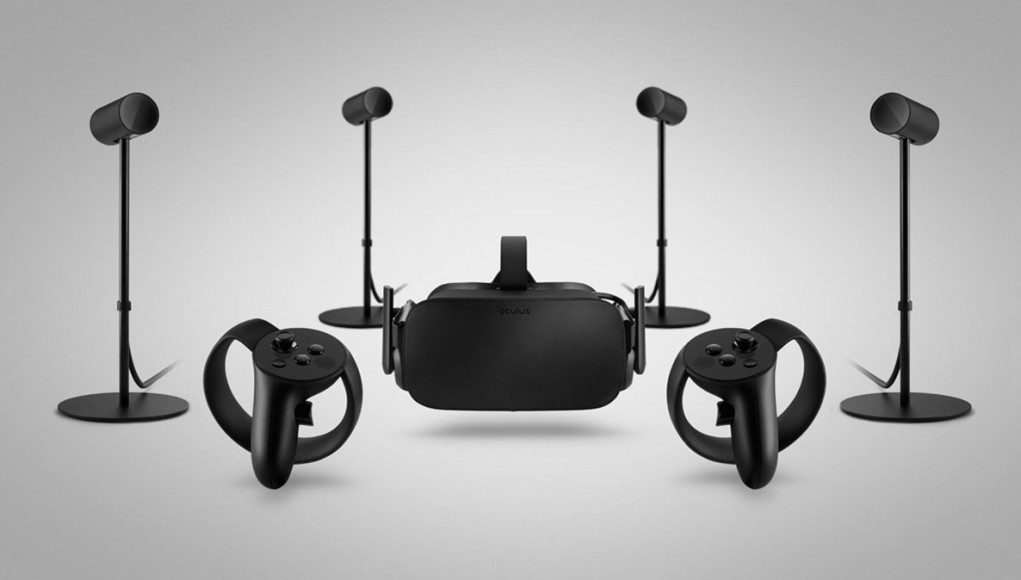Alongside the $100 price cut of both Rift headset and Touch controllers, Oculus also permanently reduced the price of additional Sensors to $59. This is the first major price reduction for high-end PC VR hardware since launch.
Oculus have applied the first permanent price reduction for their PC VR hardware since the Rift launched in March 2016 – cutting $100 off both the headset and Touch motion controllers. This means a new Rift and Touch bundle is now $598, down from $798. The halving of the Touch price alone should tempt many Rift owners still on the fence about motion controllers to jump in, particularly with the added incentive of the recently-launched Robo Recall.
 Lost in the excitement of this aggressive pricing strategy was the news that the Oculus Sensor has also dropped to $59, down from $79. This is good news for those who want to make use of a third sensor to create a roomscale VR play space. It also means that a viable roomscale setup is now available for $657, significantly undercutting the $799 HTC Vive, which has more hassle-free room-scale capabilities straight out of the box.
Lost in the excitement of this aggressive pricing strategy was the news that the Oculus Sensor has also dropped to $59, down from $79. This is good news for those who want to make use of a third sensor to create a roomscale VR play space. It also means that a viable roomscale setup is now available for $657, significantly undercutting the $799 HTC Vive, which has more hassle-free room-scale capabilities straight out of the box.
That said, despite Oculus making good progress, there are still some who seem to be fighting issues when equipped with 3 or more sensors, utilising the company’s “experimental” room-scale mode. Commenting on an Oculus subreddit in February, Nate Mitchell said that recent updates meant Oculus were seeing “improve tracking quality in aggregate” and that many problems were “too many sensors (4 or more sensors can suffer from USB challenges) and overall sensor positioning (sensors too far apart from each other and/or not enough overlap in field of view).” Oculus recently released version 1.12 of their Rift software, with still more improvements in this and other areas – so far feedback seems positive.







